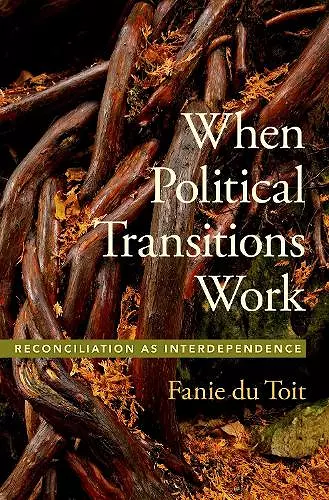When Political Transitions Work
Reconciliation as Interdependence
Format:Hardback
Publisher:Oxford University Press Inc
Published:30th Aug '18
Should be back in stock very soon
This hardback is available in another edition too:
- Paperback£28.49(9780197582626)

The peaceful end of apartheid in South Africa was a monumental event in late twentieth century history. A racist regime built upon a foundation of colonialist exploitation, South Africa had become by that point a tinderbox: suffused with day-to-day violence and political extremism on all sides. Yet two decades later it was a stable democracy with a growing economy. How did such a deeply divided, conflicted society manage this remarkable transition? In When Political Transitions Work, Fanie du Toit, who has been a participant and close observer in post-conflict developments throughout Africa for decades, offers a new theory for why South Africa's reconciliation worked and why its lessons remain relevant for other nations emerging from civil conflicts. He uses reconciliation as a framework for political transition and seeks to answer three key questions: how do the reconciliation processes begin; how can political transitions result in inclusive and fair institutional change; and to what extent does reconciliation change the way a society functions? Looking at South Africa, one of reconciliation's most celebrated cases, Du Toit shows that the key ingredient to successful reconciliations is acknowledging the centrality of relationships. He further develops his own theoretical approach to reconciliation-as-interdependence-the idea that reconciliation is the result of an integrated process of courageous leadership, fair and inclusive institutions, and social change built toward a mutual goal of prosperity. As Du Toit conveys, the motivation for reconciliation is the long-term well-being of one's own community, as well as that of enemy groups. Without ensuring the conditions in which one's enemy can flourish, one's own community is unlikely to prosper sustainably.
Mostly about the South African transition from apartheid to independence and its current state of post-reconciliation disquiet and dissatisfaction, this thoughtful book sets out useful general theoretical constructs and examines the relationship of reconciliation to independence and interdependence. * R. I. Rotberg, Harvard University *
ISBN: 9780190881856
Dimensions: 160mm x 231mm x 25mm
Weight: 544g
312 pages